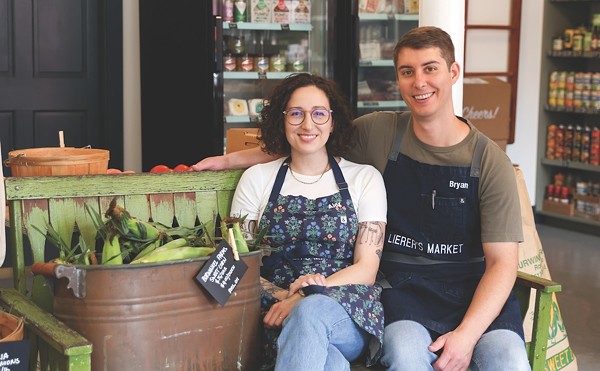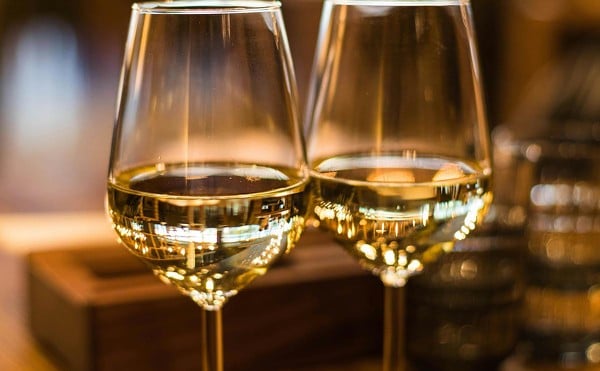|
As a college student — in Europe on foreign study — I once spent the holidays in Wales with some distant relatives. Christmastime in the Welsh countryside was just as Dylan Thomas described it: There were billowy chill hills of winter white and a roiling cold green sea; yellow lamplight pierced the eerie black stillness in the evenings. There were rich foods to eat, and pipe smoke filled the small, low-ceilinged parlors. By night, you drank brandy out of tiny glasses; by day, there were pots of steaming tea served in brittle china cups. And there was fruitcake.
One afternoon during my visit, an Elderly Relation took me around the little South Wales village to meet assorted decrepit family members. At each house, various crones welcomed me in from the cold, seated me on a high sofa, and served me tea and what they call "Christmas Cake." Out the hostess (Cousin Gwyneth or Auntie Blodwyn) would come, bearing a silver tray. On the tray sat a China teapot covered in a homemade tea-cozy, and next to it something that looked like a brand new grave. In Wales (and Ireland), they cover fruitcakes in an inch-thick slab of sickly sweet marzipan, blanketing all sides but the bottom, to keep the cake moist.
We must have visited at least five or six such hospitable old ladies, and thus was I served five or six thick slices of this stuff. A dark rectangle of fruitcake swathed in a heavy ribbon of pure almond sugar, washed down with scalding hot milky tea.
You might think that afternoon alone would have constituted a sufficient fruitcake nightmare to put me off the stuff forever. But you'd be dead wrong. I adore fruitcake, and that experience is partly why.
It's not surprising that fruitcake isn't popular in America. It evokes an experience alien to ours here today, something long ago and very far away. The darkness and complicated flavor of fruitcake is suited to the ancient lands of Wales and England and Ireland, where it still enjoys undiluted and unquestioned popularity. Like its cousin, the plum pudding, it's a beloved tradition. Fruitcake — which consists of a buttery cake batter, laden with liquor, holding together a dizzying assortment of dried fruits and nuts — is part and parcel of the Old Countries that are the origins of our Anglo-Saxon roots. It brings back times before electric lights, before telephones and cars, times when night was black and disease and hardship were closer to home. It belongs to an era when there was more shadow and mystery in the world than there is today, certainly than there is in urban and suburban America.
There's nothing plain about fruitcake. When you take a piece in your mouth, you're assailed by many flavors, none easily discernible, and that in itself is a delightful, non-modern sensation. You taste molasses, certainly, and the warm meltiness of real butter, winey fruit, something that might be chocolate but isn't, the surprising sweet, rich crunch of pecans, the woody taste of walnuts and the satisfying chew of raisins. An enormous number of currants can be found in fruitcake, and they account in no small part for the depth of the flavor. The robustness and complexity of fruitcake express an atmosphere of obscurity, faith and mystery. It's a taste for sophisticated palates, for people who like bleu cheese and black licorice, Calamata olives, red wine, bitter-sweet chocolate and Scotch whisky.
The ancient Romans supposedly made a seed cake with fruit that was nourishing and long-lasting enough to take into battle and feed soldiers on the war campaign. Some Web sites point to a 17th-century tradition of baking a seed cake with nuts that could be stored and eaten the following year at harvest time. These sturdy cakes might be the forebears of the British and Irish Christmas offering, but the only attribute they share is the reputation for longevity.
The classic Joy of Cooking says that a liquored-up fruitcake (my grandmother was a stern, teetotaling Baptist Welshwoman who didn't put booze in her Christmas cakes, but they tasted divine anyway) stored in a tin filled with confectioners' sugar could last for years. I've always wanted to try this experiment for kicks, but I love fruitcake too much to sacrifice even one of them to science. My cakes are usually devoured within a few days.
Why did fruitcake become the scourge of modern Yankee Christmas? When did it become the door stopper, the gift that people rewrapped and passed around from year to year, the object of disgust, the ultimate white elephant present? Maybe it was when our society came into its brightly lit, commercialized own, spurning the old ways, the ancient mysteries and intricacies of living closer to nature, in favor of the pre-packaged, the labor-saving, the simple, the easily understood. Surely our nation is mature enough now to explore our shadow side again: Aren't we sufficiently urbane and cosmopolitan to look back at our roots and savor the hearty tastes of times gone by?
Store-bought fruitcakes are to be avoided, since they are invariably pale and boring. Too much bland cake, not enough molasses and fruit. I blame people's dislike of candied fruit, or citron on these pathetic prefab efforts. In a real, homemade cake, you don't notice any one ingredient; they all blend miraculously together in your mouth into a piquant and surprising experience of deep, full-bodied wonderfulness. Absolutely delicious. Utterly unsimple. Put an end to the slavish adherence to conventions of modernity: Ignore the jokes, be an adult and try a piece of fruitcake again this Christmas. ©





